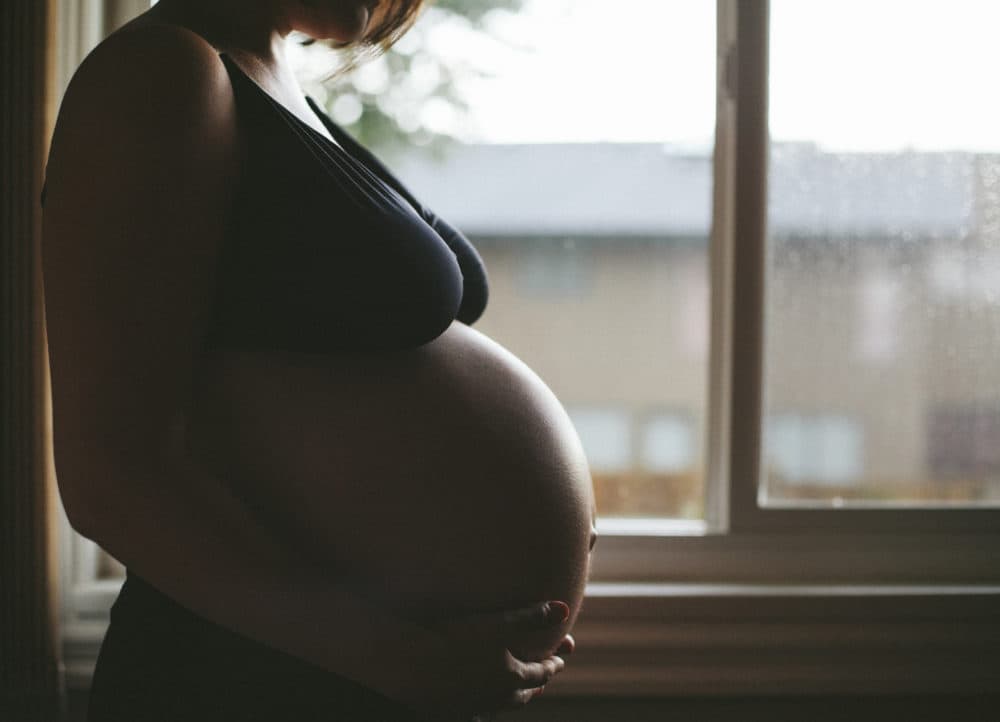Advertisement
Pregnancy complications increased during the pandemic, study finds

Pregnancy-related complications and deaths after childbirth increased during the first year of the COVID pandemic, according to a sweeping new analysis from a team of Boston-based researchers.
The findings reflect the experience of 1.6 million pregnant patients who delivered babies at 463 hospitals across the country. They were published Friday in the medical journal JAMA Network Open.
WBUR spoke with the study’s senior author, Dr. Jose Figueroa, an assistant professor at Harvard T.H. Chan School of Public Health and physician at Brigham and Women's Hospital.
This interview has been edited and condensed for clarity.
Your research looked at pregnancy and birth outcomes before and during the COVID pandemic. What did you find?
"Unfortunately, across many conditions, we saw that the odds of pregnancy-related complications went up. These include things like gestational hypertension and postpartum hemorrhage or bleeding. Preeclampsia, another condition which is life-threatening for both the mom and the child, slightly went up as well.
"The rate of maternal death in this study went up slightly. In a country in which we think we have a pretty good health care system, the fact that that happened is highly, highly concerning — especially as we think about 'how could we prevent this from happening again?' "
Why do you think this happened? What are the reasons for these worse outcomes during the pandemic?
"Routine obstetric outpatient care was just completely disrupted during the pandemic. The timing of ultrasounds changed for some pregnant people across the country, their ability to see doctors in person and getting their blood pressure checked changed.
Advertisement
"The second thing is it just changed the way we do routine care in the inpatient setting. Whether that contributed to less monitoring in the inpatient setting is a possibility as well.
"And we cannot overstate how bad the pandemic was on the lives of individuals as a stressor. The risk of these pregnancy-related complications are increased in times of high stress."
How much of a factor was COVID itself — people getting seriously ill with COVID during pregnancy?
"It was quite small. Of the 805,324 pregnant people in the pandemic period, 318 of them had confirmed COVID during hospitalization. So this is less than 0.1%.
"I think this is more a story of the disruption of COVID-19 on routine standards of care. It changed the number of times people saw OB doctors. It changed the number of times they were getting ultrasounds. It changed the number of times they're able to get their blood pressures checked."
You studied pregnancies and births in the first year of the pandemic, until April 2021. Do you know if these trends are continuing — or could that have been one bad year?
"Unfortunately, we don't have more recent data. I don't know exactly if these outcomes — did they get better, or did they stay persistently bad? But if we look at data for other conditions, it does seem like there's been sort of a return to pre-pandemic trends. We're seeing that in admissions for heart attacks, admissions for strokes, admissions for other chronic conditions. And so my hope is that we’re returning back to what was normal before the pandemic."
This article was originally published on August 12, 2022.
